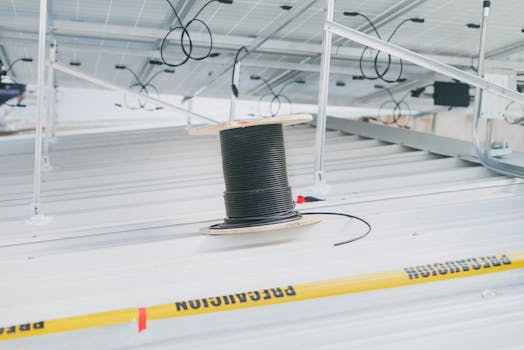Solar Panels and Roofing: What You Need to Know Before Installation
Welcome to the world of sustainable energy! Solar panels and roofing are two elements that are becoming increasingly popular among homeowners and businesses alike. As the demand for renewable energy sources continues to rise, many individuals are turning to solar power as a cost-effective and environmentally friendly solution. However, before you jump on the solar bandwagon, there are a few key things you need to know about the installation process. In this article, we will guide you through everything you need to know about solar panels and roofing before making the switch to solar energy.
What are Solar Panels and How Do They Work?
Solar panels are devices that are primarily used to convert sunlight into electricity. They are made up of photovoltaic (PV) cells which are responsible for absorbing sunlight and converting it into direct current (DC) electricity. This DC electricity then goes through an inverter, which converts it into alternating current (AC) electricity that can be used to power appliances and other electronic devices in your home or business. The energy produced by solar panels is clean and renewable, making it an attractive option for those looking to reduce their carbon footprint.
The Importance of a Good Roof for Solar Panel Installation
When it comes to solar panel installation, your roof plays a crucial role. It is important to remember that solar panels are designed to last for at least 25 years, so you want to make sure your roof is in good condition and able to support the weight of the panels for the long haul. A strong and sturdy roof is essential for the successful operation of your solar panels.
Before installing solar panels, it is recommended to have your roof inspected by a professional roofer. They will be able to identify any weak spots or areas that may need repairing before the panels are installed. It is also important to consider the age and material of your roof. If your roof is nearing the end of its lifespan, it may be best to replace it before installing solar panels to avoid any potential issues down the line.
Factors to Consider When Choosing Solar Panels
Not all solar panels are created equal. That is why it is crucial to do your research and consider the following factors before selecting the right solar panels for your home or business:
Type of Solar Panel
Solar panels can be categorized based on their composition – monocrystalline or polycrystalline. Monocrystalline panels are made of single silicon crystals, making them more efficient than their polycrystalline counterparts. However, they also tend to be more expensive. Polycrystalline panels are made of multiple silicon crystals and are a more affordable option, but they are slightly less efficient.
Power Output
The power output of solar panels is measured in watts (W) and is an important consideration when choosing the right panels for your energy needs. The higher the wattage, the more electricity the panel will be able to produce. Keep in mind that the total wattage of your panels will also depend on the number of panels you install.
Durability and Warranty
Solar panels are a long-term investment, so you want to make sure they are built to last. Look for panels that have a sturdy frame and are able to withstand harsh weather conditions. Additionally, it is important to check the manufacturer’s warranty to ensure that the panels are covered for an extended period.
Benefits of Solar Panel Installation
Switching to solar energy offers numerous benefits – both for the environment and for your wallet. Here are a few key advantages of solar panel installation:
Reduced Energy Costs
One of the biggest benefits of solar panel installation is the potential for significant savings on your energy bills. By producing your own electricity, you can reduce or even eliminate your reliance on the grid, which means lower monthly energy costs.
Environmental Impact
Solar energy is a clean and renewable energy source, meaning it does not produce greenhouse gas emissions or contribute to air pollution. By switching to solar, you are reducing your carbon footprint and helping to combat climate change.
Tax Incentives and Rebates
Many governments and utilities offer tax incentives and rebates to encourage individuals to switch to solar energy. These incentives can significantly reduce the overall cost of solar panel installation.
In Conclusion
Solar panel installation is a smart and environmentally friendly way to power your home or business. By considering the factors mentioned above and working with a reputable and experienced solar panel installer, you can make the switch to solar with confidence. Remember to also consult with a professional roofer to ensure your roof is in good condition before installation. With solar energy, you can save money and do your part in creating a more sustainable future for generations to come.








